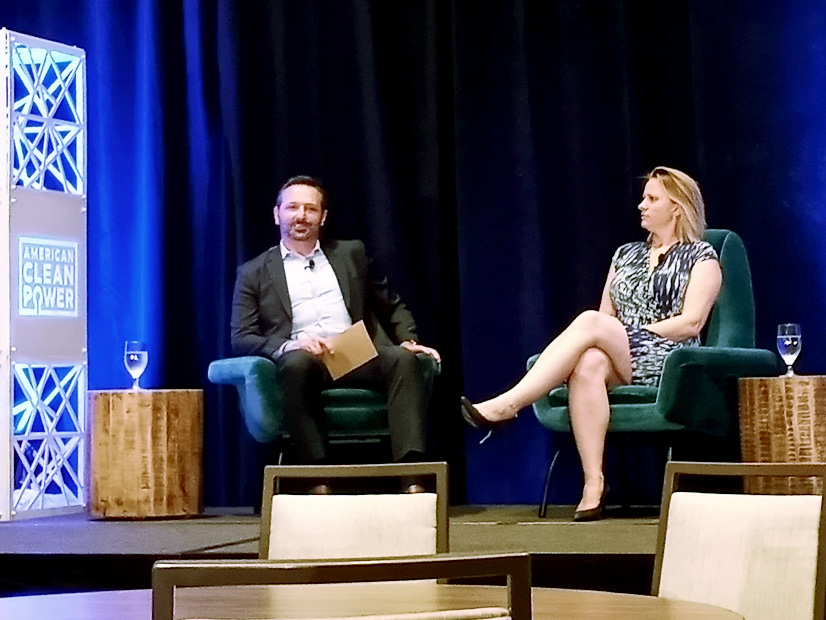
BOSTON — Environmental justice communities are already doing the work needed to make renewable energy industries like offshore wind equitable in their workforce and community benefits, according to Elizabeth Yeampierre, co-chair of the Climate Justice Alliance.
“We have questions; we have solutions; and we have concerns,” Yeampierre said during a panel on environmental justice in the development of the U.S. OSW industry. “Anyone who is coming into the sector needs to be able to support that and not manage our expectations or give us a voice — we have a voice, and we are leading this work nationally.”
The panel on Thursday was part of the American Clean Power Association’s Offshore WINDPOWER 2021 conference, held in Boston this week. It brought together officials from the federal and state level, as well as environmental justice advocates and a developer to discuss how to ensure frontline communities are equitably included in workforce development, training and education recruitment.
Developers should advise environmental justice communities on financing, costs and technical construction work, because “we’re leading this movement,” Yeampierre said, herself a leader from a community on the frontline of climate change in Brooklyn, N.Y. “We are not here to advise you.”
Conversations on how to equitably include environmental justice communities are not just about the disparate impacts of the energy industry on people of color and low-income workers, but a matter of allowing people in these communities to speak for themselves, she added.
“Really, the national initiatives and the state initiatives are being shaped by the work that is being done in vulnerable communities like ours,” Yeampierre said.
For example, New York City recently invested in the South Brooklyn Marine Terminal, a two-acre site on the Bay Ridge Channel, to make a national staging and assembly site for OSW. The terminal will be operated by Equinor, developer of the 1,260-MW Empire Wind project.
The company said it will establish a $5 million fund to ensure New Yorkers from low-income communities and communities of color benefit from the new investment, including the creation of at least 6,000 local jobs, because of advocacy from leaders like Yeampierre.
“Success for environmental justice communities equals having access to training, workforce development and education in all levels of employment,” she said. “Our communities can’t be boxed into bonuses or only have access to minimum wage or entry-level jobs.”
From a developer perspective, states have been leading the way with commitments to include underserved communities, said Nancy Sopko, head of external affairs at US Wind.
“There is a very strong commitment from the state to include local content in our OSW projects” to bring on more members of minority-owned businesses, women-owned businesses, veteran-owned businesses and disabled persons-owned businesses in the state, Sopko said,
But it is important that the jobs given to these businesses are good jobs, said Crystal Pruitt, deputy director of the Office of Clean Energy Equity for the New Jersey Board of Public Utilities.
People of color and women often receive “little cheap jobs and simple jobs that don’t mean anything and companies just mark it off,” Pruitt said. “Look at the jobs you’re giving these communities and these contractors and recognize that they need to be lifted up and become prime as well.”
